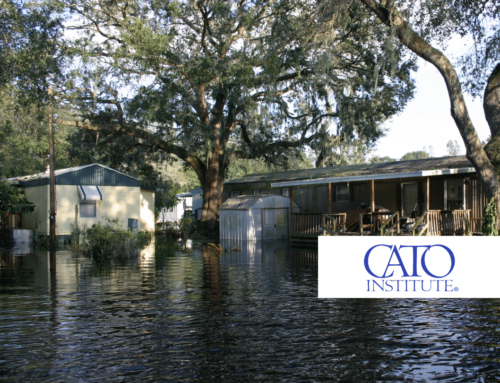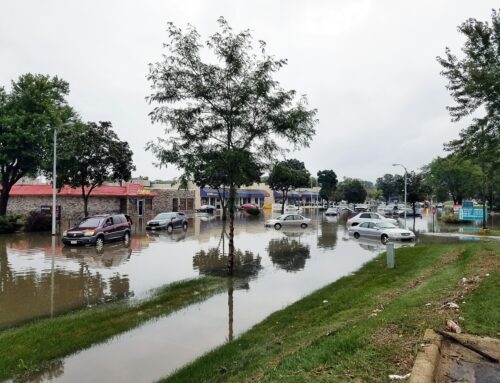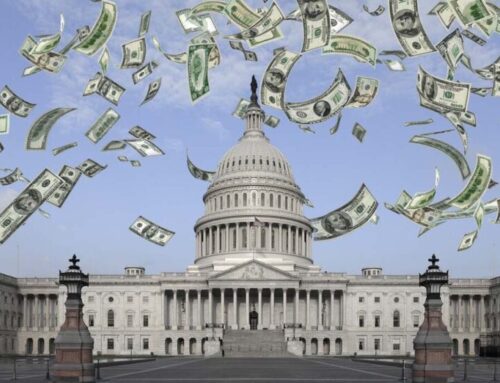Recently, TCS was invited to Charlottesville, Virginia to speak with citizens and reporters about a project we have opposed since the organization's earliest days: the Charlottesville Bypass. This project is a proposed 6.2-mile road that would route drivers around a congested commercial corridor in Charlottesville, US Route 29. The estimated cost is $245 million, and $200 million would come from federal sources. Given the significance of the investment taxpayers are being asked to make and the shortage of cash from Washington for transportation and everything else, we would expect significant regional or national benefits, or a very high local return on investment. This project exhibits neither.
According to Virginia Department of Transportation (VDOT), the purpose of the project is to increase efficiency and safety along the existing US29 corridor, and reduce travel times for motorists travel through, not to, Charlottesville. Project proponents believe this new road would mean a faster trip for trucks coming from downstate on the way to DC or New York City and congestion reduction on the existing road. Evidence suggests that neither is true, however, calling into serious question why this project is being considered, and potentially explaining why it's been on the drawing board since 1984.
An analysis of the claim that it would save time for truckers and other through-travelers indicates that the time savings will be as little as one minute compared to navigating the existing US29, a negligible savings on a multi-hour journey markets in the Northeast. In addition, the new road would likely do little to improve conditions for travel within Charlottesville. VDOT’s own traffic forecasts indicate very little improvement in driving conditions on US 29 if the bypass is constructed, especially during the morning and evening peak periods. Congestion will still remain a significant problem in need of a solution, with or without a bypass.
Even worse, significant changes to the project in the most recent bid accepted by VDOT will further reduce any travel time savings and other project benefits, making it a worse taxpayer investment. Keep in mind that these changes (details to follow) were accepted because the proposal had to be shoehorned to fit a specific dollar amount ($136 million), which allows proponents to claim that the price of the project hasn’t increased. More on that in a moment.
The project’s southern terminus lies at the edge of the University of Virginia campus, and significant changes to the project were accepted in this area to help the contractor shave millions off the price tag. Normally, that would be something we would applaud. But in this case, the changes raise serious questions about safety and road utility.
The bypass will now utilize the local road system at its southern end for a brief period, allowing it to include a very steep 11.4% grade slope (the maximum slope on a highway would likely be 6%). This is less expensive because the contractor would be spared from blasting through the existing mountain to reduce the grade. Though less expensive, this design is extremely unsafe for southbound trucks coming down such a steep slope and a potential disaster for pedestrians (ie. UVA students and faculty) crossing the road at the bottom of the hill. Northbound trucks would face the challenge of climbing that steep slope, made even more difficult by the fact that there are two stop lights on the existing local road. The problems with the current design of the southern terminus are so acute that several trucking operations have indicated they would likely avoid using the road because of these safety concerns, and it's hard to imagine that the university would not demand changes to keep students safe from harm.
The northern terminus of the road also poses significant challenges, which are being ignored in the interest of reducing the project's perceived cost. North of Charlottesville, the bypass would reconnect with US 29 in a rapidly developing area, such that trucks coming off of the bypass would still have to navigate a congested stretch of road before they would be clear of Charlottesville’s traffic.
One might ask why we would oppose a plan that reduces the overall cost of the bypass. The reason is two-fold. For one, the current proposal reduces the overall benefit and utility of the bypass. This makes its price tag even worse from a benefit-cost perspective. And more importantly, there is every indication that the contractor will improve the proposed design (especially at the southern terminus, where it appears unlikely the University would not raise serious concerns with the proposal) and simply tack the cost onto the project after the fact. For this reason, there is good reason to believe that the final price tag will surpass the current $250 million estimate.
The politics surrounding this project do little to make us feel any better about the motivations for its relatively sudden revival. After years of opposition, the Albemarle County Board of Supervisors quickly reversed course on the project without any public input at the very tail end of a meeting about a completely different matter. In addition, just a couple of weeks ago a member of the Commonwealth Transportation Board (CTB), James Rich, was given the heave-ho for his opposition to the project. One important reason for his opposition is that the Culpeper District, which he used to represent on the CTB and where the bypass would be located, has a six-year budget of $338 million. The bypass would consume at least 70% of those funds, and possibly more if the price rises as expected.
The simple fact is that we can find no reason to believe that this project is worthy of taxpayer investment. Virginia Department of Transportation is trying to push this project ahead based on an assessment that is many years old, even after significant changes were made to the project. At the very least, this project deserves a much harder look and the public deserves to know the true cost and potential drawbacks of this project. In the final analysis, we believe taxpayers would be better of if the project was killed outright and the state were to sell off the many properties it has acquired through eminent domain to recover the investment taxpayers have already made to date. There are too many important priorities in Virginia and across the nation, and too little resources to get even the most important of those done. To build a stinker like the Charlottesville Bypass just makes accomplishing those priorities that much more of a challenge.
Selected resources about the project:
Editorial by Jim Rich, former CTB representative: http://www.readthehook.com/109094/road-nowhere-western-bypass-must-be-stopped
Details of the Skanska/Branch contract award: http://www.virginiadot.org/newsroom/statewide/2012/$136_million_design-build_contract58408.asp
Bacon's Rebellion has done some of the best coverage of this project: http://www.baconsrebellion.com/tag/charlottesville-bypass
TCS has long opposed this project, most recently in our proposal as to how to avoid sequestration: http://www.taxpayer.net/library/article/sliding-past-sequestration-2-trillion-in-common-sense-cuts-to-avoid-the-fis











Get Social